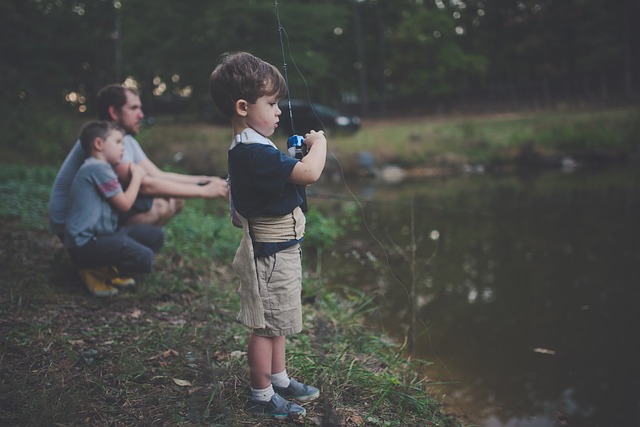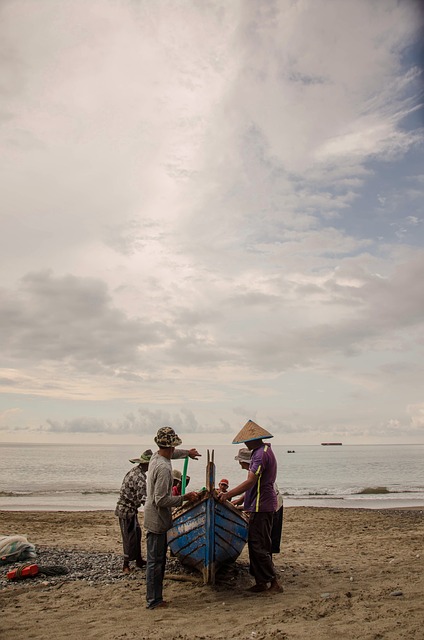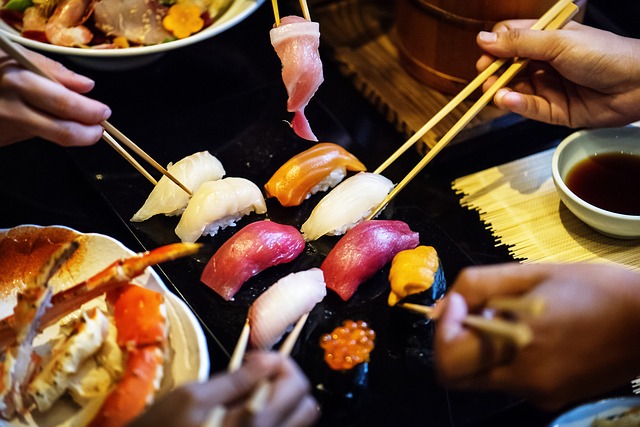
People associate different meanings with fishing. Some people consider fishing a sport that requires much dedication and proficiency. Others place more emphasis on the relaxation aspect of a fishing trip. Lastly, fishing is a way to enjoy one’s day while acquiring food for a sumptuous meal or two. Fishing is something you can do, no matter what it means to you, and here are tips to get you started.
Be very cautious when wading in water. When wading through a river and fishing, walk carefully. Making too much noise can scare the fish. Sound travels far under the water. Try not disturbing the river bed and be patient.
When you go fishing it can help you to bring sunscreen, even if it isn’t all that bright out. The reflective action of the water can intensify the effect of the sun’s rays, which can cause serious sunburns.
Once you have located the best fishing spot, cast upstream from there. The current will pull your bait right by the fish. The more natural motion of the downstream drift will do a better job of attracting the fish to bite your bait. For areas with an obstruction, this method is very useful.
Always check the weather before going on a fishing trip so that you can be sure that you will be safe. Also, take a weather radio with you so that you can informed of conditions.
Take along a camera if you do not plan on keeping the fish, this way anything you throw back will be saved on film. This way your fish will live to be caught another day and the photo is your keepsake of your great catch.
Larger Bait
Remember that larger fish require larger bait. Larger bait is generally more expensive, but it could be worth the cost for a big fish at the end of your line. This is logical since larger fish will choose larger pieces of food and therefore, will be out looking for larger bait.
Make sure you understand the laws and regulations of the area you are fishing in. Certain areas prohibit fishing in a specific lake or river, while other areas may not allow a specific kind of bait. Contact your local government if you are not sure.
The correct gear is essential when fishing. The choice of whether to utilize live bait or lures is dependent on the kind of fishing you plan on doing. It is important to understand the sorts of lures that are effective in various circumstances.
Knowing the weather before you leave for your trip can dictate how many fish you catch. Always be sure to check what the weather will be before going out fishing. Check several days or a week ahead of time, and then check again the night before. If the weather does not look good, postpone your fishing trip.

You always need to make sure that you have sharp hooks when you go fishing. No matter if everything else is in place, dull hooks pose a serious obstacle to catching fish. Carry new replacement hooks with you to switch out regularly, or sharpen the hooks you have used as you go along. Few things are more important than a freshly sharpened hook.
Make sure you take a net with you when you go fishing. After reeling in your fish, they are sometimes very active and flop around, which makes them hard to handle without a net. This can help reduce the chances that you lose your fish back into the water.
Catch and release is a good fishing method when you are only fishing for fun and not for food. This involves carefully unhooking your fish and releasing them back in to the water. Catch and release allows smaller fish to continue growing and gives you a better chance of catching a bigger fish later.
If patience is an issue, change spots periodically. This will enable you to have a fresh mind and you will also be able to enjoy the scenery, as well. You may also find a location where the fish are actively biting.
Bug Spray
Bug spray should be kept in your fishing arsenal. There are many bugs including mosquitoes near bodies of water. Spare yourself the distraction and discomfort by bringing insect repellent. Without the bug spray, mosquitoes will find you easy prey and attack you. This could result in a ruined fishing trip.
Despite what some infomercials may lead you to believe, there is no single “miracle” bait that will land every type of fish under every condition. To catch the fish you want, you will need to know how to use different bait, such as worms, jigs or grub. A jig, for example, is best used in muddy waters where their up and down motion can capture a fishes eye. Alternately, plastic worms work best in clear water where fish can spot them without having the fisherman using any unnatural motion.
The best way to fish is to ensure that your rod and reel are suited for catching fish found in your chosen spot. For instance, if you want to catch a walleye, bait it with a jig or minnow. Each different fish has a different optimal bait that changes based on time, location, and other factors.
If you want to find the premiere spots for fishing, ask those who are familiar with the area where you plan to fish. Some good people to ask are game wardens, bus drivers, postal workers and others who are very familiar with the lay of the land. You should always make sure that you have permission to fish any body of water, most importantly with a valid fishing permit.
Perhaps, your opinion about fishing has changed since you have read the information provided above. Is this the sport you want to pursue? Or how about your means of food or relaxation? Whatever your reasons, the tips you have found above will help you optimize the time you spend on the crank end of a rod and reel.
